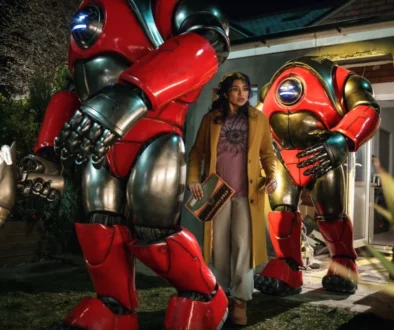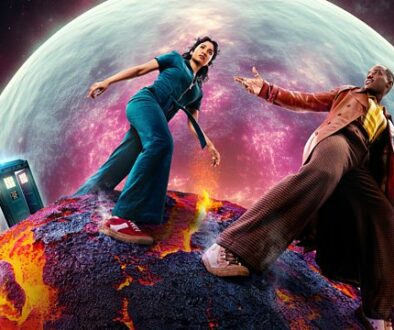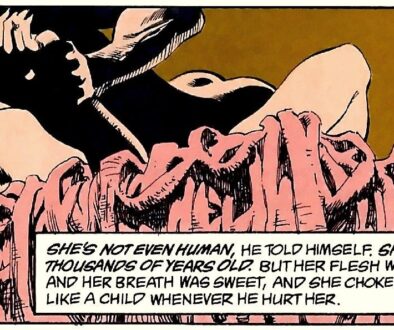Theses on Trump Preview
Well, the Kickstarter hit $4000 overnight, which means we’re on our way to our second stretch goal, “Theses on Trump,” projected to be another lengthy essay. This was an odd topic for me – present-day electoral politics aren’t my normal beat, and it’s not like there’s a shortage of Trump thinkpieces in the world. But I think I managed to find an angle on the topic that would work with my psychochronographic approach. Here’s the first 1500 words. The plan from here is to get weirder and weirder, of course.
Schedule for the next couple days is Super Nintendo Project Tuesday morning, a Neoreaction a Basilisk excerpt Tuesday afternoon, and a podcast with David Gerard, who got Neoreaction a Basilisk serialized to him as I was writing it, on Wednesday morning. Then normal schedule for the rest of the week.
For now, “Theses on Trump,” or at least the first 1500 words of it. If you enjoy and want to read more, I’m sure you can surmise how to make that happen.
—
0.
Let us accept that categorization is pointless, and that any attempt at it will eventually collapse under the basic fact that he is contradictory and in his own way even contains multitudes like some Deleuzian/Guattarian Rhizome. He is what he is, in his own way as deific as that makes him sound. He does not have immediate political analogues in 1930s Germany or 40s BCE Rome any more than he does in 1650s Britain or 2013 Australia. Similarities abound, but every case is unique. It is not even useful to call him liberal or conservative. He is right-wing, I suppose, but only insofar as he is adamantly not a leftist. On the whole, however, he is simply not particularly ideological. He is an aesthetic wedded to a perversion. In the end, most people are, and virtually all politicians. Still, one has to start somewhere.
1.
It is not quite possible for anyone who did not grow up in the greater New York area to understand him. It is not that rich idiots in the general case are unique to the Atlantic northeast; the British class system is founded on such people, after all. Rather it is the particular subspecies of rich idiot that he occupies; one that is, so far as I can tell, unique to the white-assimilated second and third generation immigrant populations of New York. Post-Gatsby empire-builders, inevitably rooted in the idiosyncratic infrastructure concerns of the northeast. Insistent, often not without reason, that an ethos of grit and ambition has driven their success, but where that success is always expanding the family business, not starting it. And there’s always a family business. Their chief talent is braggadocio. Their favorite movie is The Godfather, but they don’t have the patience for Part II.
It would be cruel to recount immediate analogues from my own tri-state area childhood, but they abound. Instead I’ll pick another vivid memory of the region; the day after the Sandy Hook shooting, in a local breakfast-and-lunch diner called King’s that people actually from Newtown still call Leo’s. Poking at pancakes that are blatantly a dessert with an overwhelming sense of the world that isn’t grief or sorrow so much as horror and awe. And from the next table over, this awful, gregarious white man. He’s so upset about he doesn’t even want to have Christmas. He says it over and over again. It is not just the only opinion he has on the matter, it is the only opinion anyone around him is to have on the matter. His dining companion. The waitress. Anyone who acknowledges his existence (and he makes it difficult not to) will be told this precise interpretation of the murder of twenty-seven people as the definitive take. As he leaves, he gives the waitress his card and tells her if she knows anyone who wants to buy a car, she should send them his way.
2.
The most perverse thing about him is that he does not actually value money so much as being rich. This is not to say that he does not enjoy the material trappings of luxury. But he enjoys these things primarily because they provide constant affirmation of the fact that he is a rich and powerful man. As far as the details, he knows what he likes, and probably asserts this in those exact words from time to time. But the way in which this is true is almost base tautology. He recognizes the tingling of his lizard hindbrain when certain things happen to him, and he calls these things great.
These things include but are not limited to: seeing his name in big, gold letters; a steak, cooked medium, with an overpriced California cult wine; telling someone to do something demeaning and having them do it; women half his age, particularly blondes; when black men carry things for him; Dorian columns; when people break eye contact with him; seeing himself on television; the look in a man’s eye when he knows you’re screwing him over but goes along with it anyway; and Citizen Kane.
3.
That’s actually a concrete example; he recorded a three minute video for an aborted Errol Morris project in which he provides a brief analysis of the film. It is terrible, of course; he is an outright idiot. A highlight is where he discusses the totemic power of the word rosebud: “The word rosebud for whatever reason has captivated moviegoers and moviewatchers for so many years, and to this day is perhaps the single word, and perhaps if they came up with another word that meant the same thing it wouldn’t have worked. But rosebud works.”
And yet his enjoyment of the film is tangibly genuine. He gets genuinely enthused speaking about things as basic as the ever-lengthening table being a symbol of Kane’s growing isolation. He speaks with all the smug vulnerability you’d expect about how wealth “isolates you from other people” because “you have your guard up, much more so than you would if you didn’t have wealth.” It’s clear this is actually a movie he cares about; that he’s actually thought about. He visibly thinks about it in front of you, pausing, searching for words. And moreover, one he cares about atypically; he is not angry at it, it does not flatter or benefit him, he loves it without further demand. It’s the Grinch with his heart growing two sizes. Maybe he does have the patience for Godfather Part II!
But it’s actually easy to see why Citizen Kane would be able to cast such a spell over him. Just imagine the swell of emotion and pride he must have felt when he found out that the greatest movie ever made was about people like him.
4.
And then the camera rolls on, the illusion crashing. “Rosebud works,” someone shouts from off camera, and he chuckles. “Right,” he mumbles. “For whatever reason,” he repeats, instinctively reasserting dominance, reframing the pitch as his again, however diminished it might now be. A jump cut, and the same voice asks, “if you could give Charles Foster Kane advice, what would you say to him?” He doesn’t miss a beat: “Get yourself a different woman.”
Powerful words from a man on his third wife. Two were Eastern European models, one a television personality. All are blondes, an almost painfully inevitable detail. He does not even pretend not to treat them as trophy wives. He’s nearly a quarter-century older than Melania; he’d already started work at his father’s company when she was born. He literally has no idea why you think that’s creepy. Of course he doesn’t: he said he hoped his one-year-old daughter inherited Marla’s breasts. And he raped Ivana.
What is perhaps most interesting here is the idea that the procurement of an adequate trophy wife is presented as business advice. On one level there is an almost medieval sense of marriage as a political act; a transaction undertaken. This fits with Citizen Kane, of course, but speaks to Welles’s flare for the Shakespearean more than anything. Certainly it doesn’t describe his status symbol demonstrations of virility.
Sure fits the brand, though. He likes his women like he likes his buildings: big and decorated in gold.
5.
That’s gender; what of the other obvious flashpoint, race? Where his sexism is object-oriented, his racism is fundamentally more structural. His positions relative to Muslims, Blacks, and Hispanics appear little more than the huckster continuing to say what the people respond to. That is not to say there’s no substance to them, but they are a byproduct of the Deal. More interesting is where the basic inclination towards racial stereotyping comes from: the material realities of New York real estate. His career is a decades-long chain of talking about “the Jews” and “the Italians” and “the Chinese” and so on through the almost geological stratification of Manhattan’s geography according to historical ethnic migrations.
It is, in other words, a psychogeographic racism, psychogeography being a term invented by the French Marxist Guy Debord, who describes its goal as being “the study of the precise laws and specific effects of the geographical environment, whether consciously organized or not, on the emotions and behavior of individuals. The charmingly vague adjective psychogeographical can be applied to the findings arrived at by this type of investigation, to their influence on human feelings, and more generally to any situation or conduct that seems to reflect the same spirit of discovery.” One does not imagine he would like this. No matter; it is essential to understanding the Manhattan real estate market upon which he created himself. His arrival on the public scene came in a redlining lawsuit accusing him of presenting blacks with higher rents than whites, a proper bit of trench warfare in the reshaping of New York’s emotions and behavior.




May 2, 2016 @ 6:49 pm
How did I not see the pun on his name coming?
May 3, 2016 @ 9:47 am
I’ve read it twice, and missed it. Can you point it out for us mortals?
May 3, 2016 @ 9:47 am
Don’t worry, I wrote it and I think I missed it.
May 3, 2016 @ 11:00 am
Huh. I did wonder if it wasn’t this bit ‘seeing his name in big, gold letters; a steak, cooked medium’, with the pun being rump. But that was tenuous.
May 3, 2016 @ 12:40 pm
Wait, you’re NOT mapping this onto the major arcana, aka trumps?
May 3, 2016 @ 6:51 pm
No, though I do have plans to do that joke at one point within it.
May 2, 2016 @ 6:50 pm
I think I’ve said this before on Phil’s tumblog but I’ll say it again because it’s rather telling: Trump grew up in Jamaica Estates, a gated community in Queens. Which is obviously it’s fitting in that Trump is the product of a white enclave created to attract white bourgeois who felt skeeved by the prospect of living in a two-mile radius of any black people; but funnier yet is that Jamaica Estates is named after the company that built the town. Which means that Trump’s obsession with plastering his name all over the Tristate Area is just him following in the footsteps of the Jamaica Estates Corporation.
May 6, 2016 @ 4:43 am
That is where I am going next, yes. Any good sources I can use?
May 2, 2016 @ 8:03 pm
In the context of the Republican Primary, the man has been a Jester: blatantly defying the social structure of the court and making his social superiors look like fools. The Jester, in western storytelling, has become an archetypal figure of chaos. Trump played that role in the debates — constantly getting laughs from the crowd by interrupting his opponents and making them look like fools, skipping debates he didn’t like, insulting the moderator. He did everything Wrong, and the audience loved it, because American audiences love a trickster figure who wanders into a stodgy, regimented place and messes everything up.
May 3, 2016 @ 12:04 am
Eve – I think you’re being a bit too kind to him and his audiences. Jesters are low status characters with some self-awareness. Trump is resolutely high-status (as much as some of the Republican elite loathe him, they have pandered to him in the past and will pander to him again if he wins the nomination). And he has demonstrated little self-awareness.
His audiences certainly feel alienated from the Republican elite but they are also want people to blame for their current state. And Trump hands out that blame in spades (China, Mexicans, Muslims, liberals). He spends as much time punching down as he does punching up. In fact, he doesn’t really care who he punches, provided the crowd roars their approval when he does so.
May 3, 2016 @ 12:15 am
The commentary on Citizen Kane is interesting because Trump is primarily an actor. He performs being a businessman on The Apprentice. One quote that sticks in my mind is from this 1997 profile: ‘A securities analyst who has studied Trump’s peregrinations for many years believes, “Deep down, he wants to be Madonna.”’
http://www.newyorker.com/magazine/1997/05/19/trump-solo
Which is emblematic of Manhattan over the last 40 years. Various inhabitants have said to me that Manhattan is now Disneyland for rich people. It’s not really a city any more, it’s a stage on which the superwealthy perform their roles (with Broadway as a play within a play*). And The Donald performs his.
*Some mix of Hamlet and Noises Off depending on your tastes.
May 3, 2016 @ 1:20 am
I feel like Spiderman: Turn off The Dark would also be appropriate.
May 3, 2016 @ 4:08 am
Spider-Trump: Turns Off the Black People
May 5, 2016 @ 5:53 pm
They should rename the island Schenectady.
May 5, 2016 @ 6:39 pm
YOU’RE BACK!
May 3, 2016 @ 2:17 am
Fair call…
May 6, 2016 @ 3:23 am
I really did enjoy this exerpt. I would say, though, that your explanation of the relationship between the psychogeography of New York City was a lot clearer in the tumblr post you made on the subject. Like, if I hadn’t read that particular tumblr post, I doubt I’d’ve understood quite what you’re getting at here. Which is a shame, as it’s an insight that I’ve found really useful, and it’d be a tragedy if people who aren’t your tumblr followers were less likely to get what you’re talking about here.
May 6, 2016 @ 4:43 am
The reason for that is that I’m expecting the next few theses to flesh it out in more solid and evidence-based detail, thankfully.
May 29, 2016 @ 1:57 am
I should have thought an “anarchist” would find the advent of the Trump quite appealing, at least compared to the Hillary, that Brezhnevite bureaucratic drone. But, of course, the author wishes to be that thoroughly incoherent thing, a Left Anarchist. So, I guess that explains it…
May 29, 2016 @ 2:39 am
You appear to be conflating “anarchist” with “accelerationist.”